      
Antique Gun Locks
Since the 1970s I have been slowly accumulating a
collection of original locks for study purposes. Here
are some examples you might find interesting.
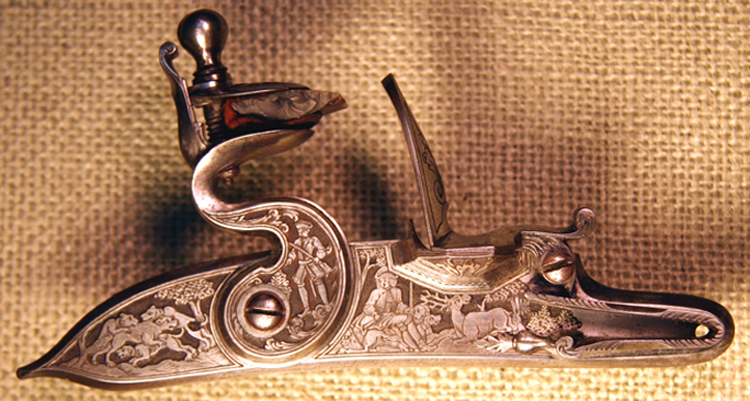
This German Jaeger lock is one that was brought to
American at the end of WWII. It is related to a rifle
being reproduced by The Rifle Shoppe, Inc. but this lock
may be a bit earlier.
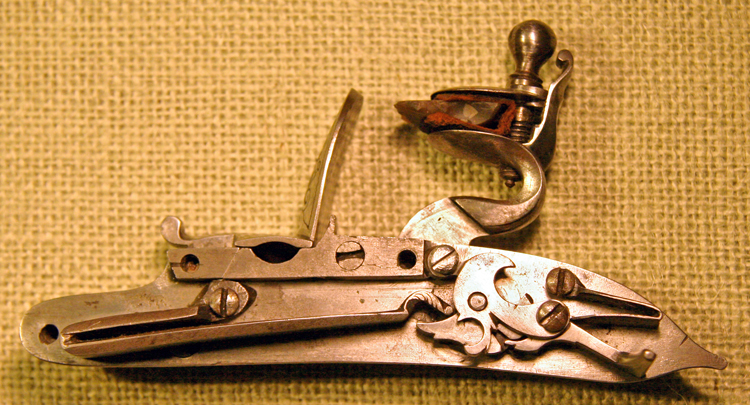
Restrained but effective decoration on the interior of
the lock. (top)
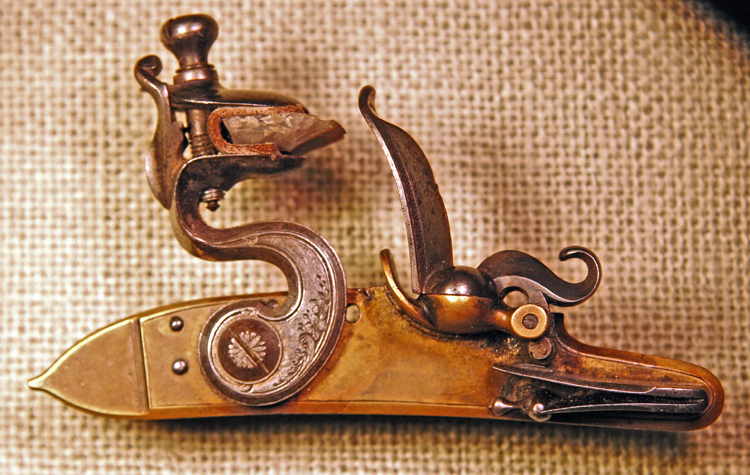
This Durrs Egg lock has quite a story to tell. It was
loaned to a man who wanted to copy it. Somehow he lost
the original iron plate but had a brass casting of the
original so all the parts were mounted back on the repro
plate. The lock was loaned again to another man in
Canada who was interested in copying it and after he
made the patterns it was shipped back to the owner.
Unfortunately it was lost in the mail. The owner was
paid the insured amount. Later it was sold in an auction
of unclaimed goods by the US Postal Service. Later it
turned up for sale at the Baltimore Gun Show.
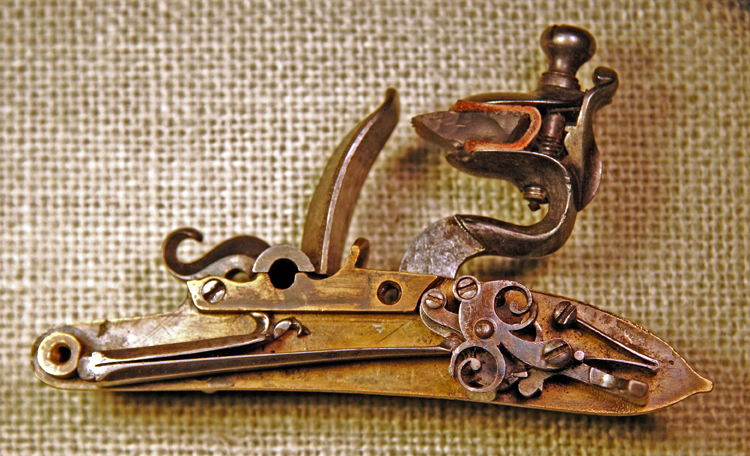
Note the traces of casehardening colors on the bridle.
(top)
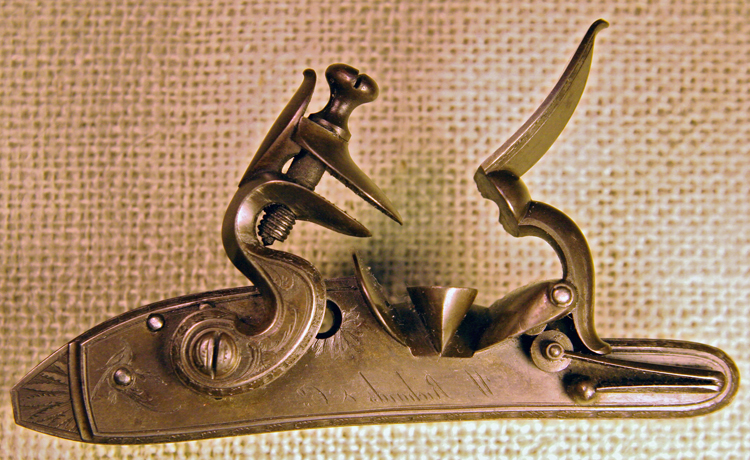
This lock is actually a left handed shotgun lock but for
study purposes I have flipped the image. It dates from
the very end of the flintlock period and has never been
snapped with a flint in place!
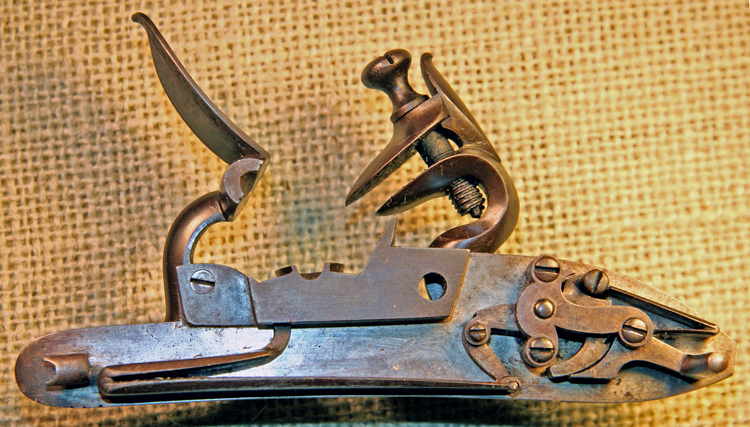
The three screw bridle is another step in the evolution
of the side lock. By the early 20th century some English
shotgun locks had five. (top)
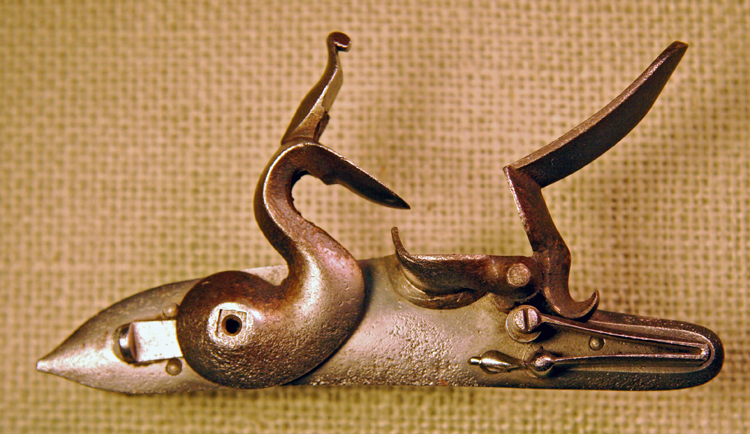
This lock with its sliding safety is a bit of a puzzle.
I suspect it is Belgian but I would be glad to hear
other evidence.
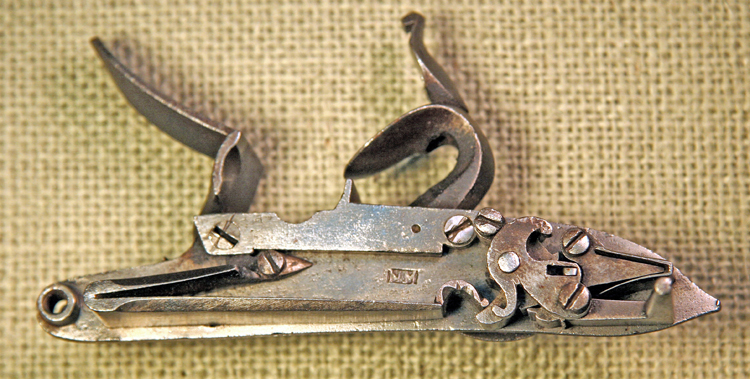
The flat spring inside the sear spring provides
tension for the sliding safety.
(top)
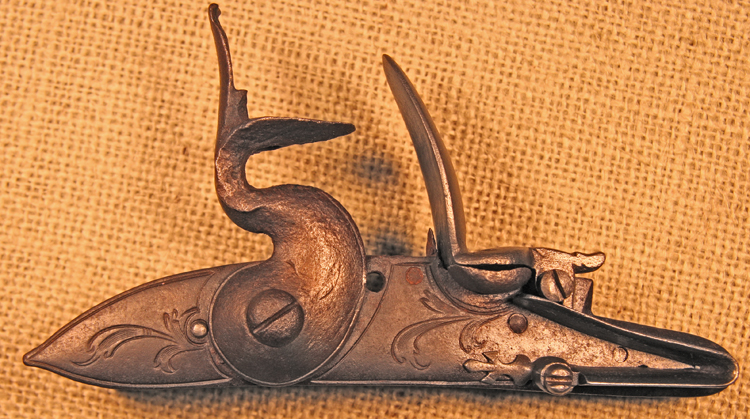
This lock is included as an example of the typical trade
quality lock imported to the colonies prior to the
Revolution. It is a bit different from most because the
pan is not integral to the plate as most English locks
of the period were.
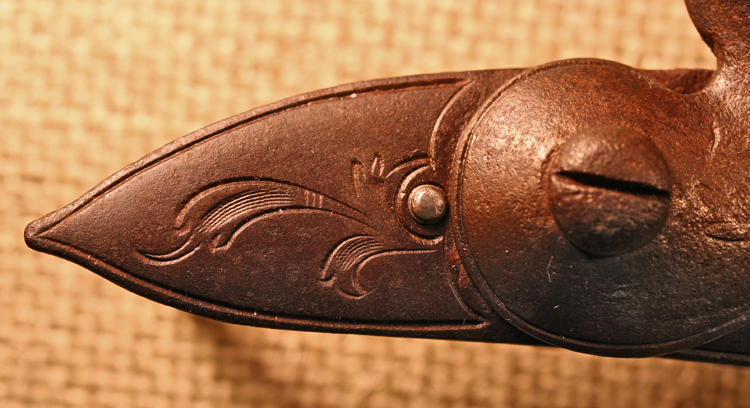
Note that the shading lines in the engraving were cut
with a convex liner that could cut at least six lines in
one pass of the graver.
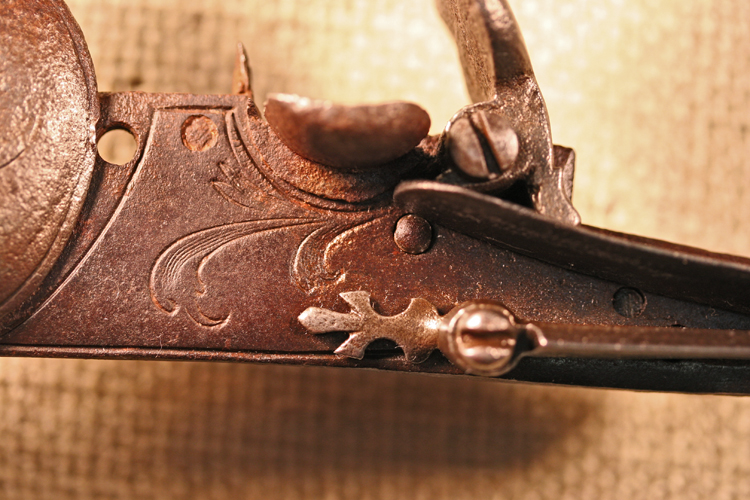
Much of the pan has been cut away for some reason.
(top)
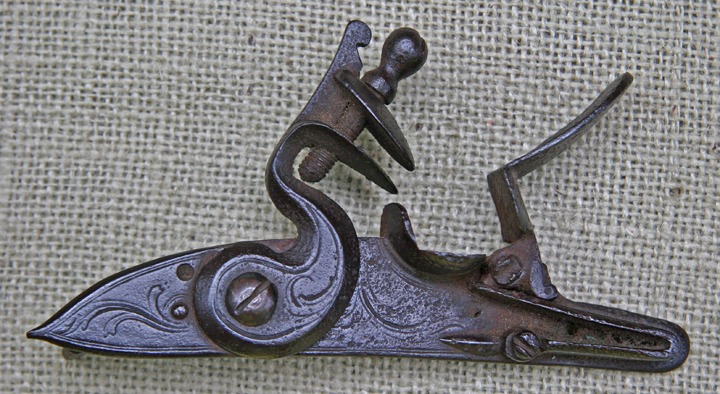
Flat faced English trade quality lock signed Blair. (ca.
1775-1785)
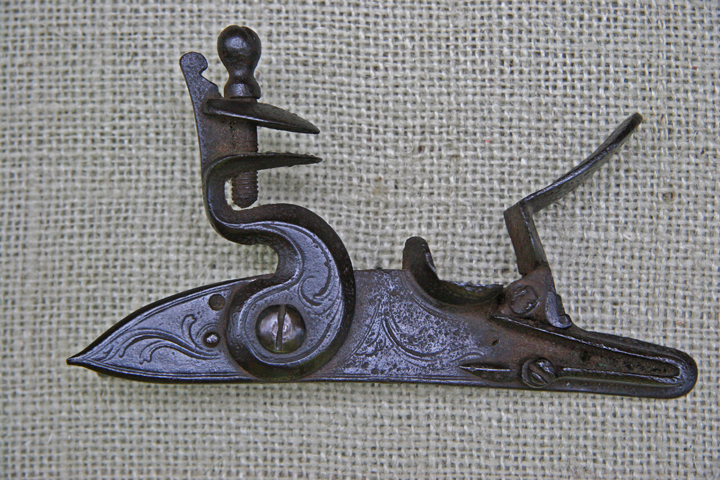
An unusual feature of this lock is the engraving on the
plate around the cock. It is done when the cock is at
rest (down).
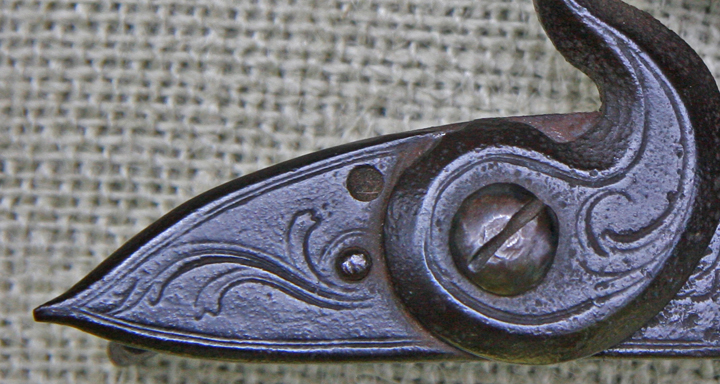
Engraving flows well with bold cuts that vary in width
to add a third dimension.
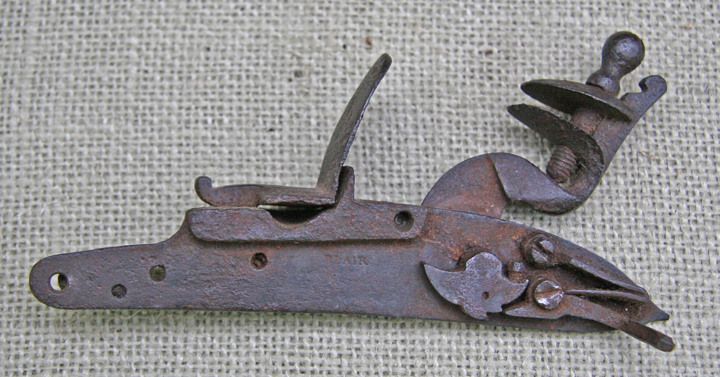
No exterior or interior bridle puts this lock in the
lower end of quality and price but it is still nicely
engraved.
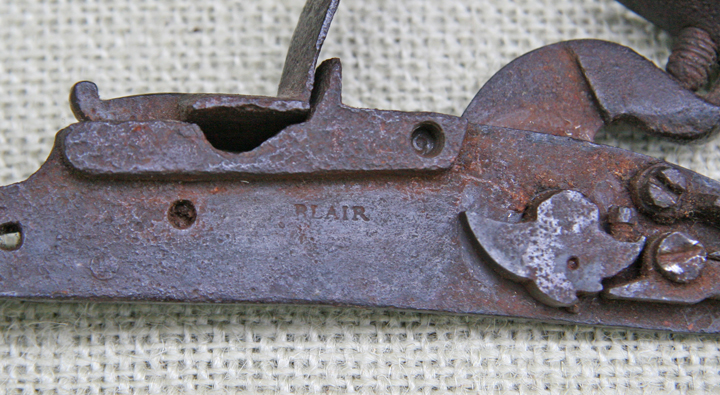
Another unusual feature is the travel stop screw in the
tumbler. There is no bridle for it to stop on!

This Virginia Manufactory military rifle lock is included because it is dated 1817
but retains an earlier profile.
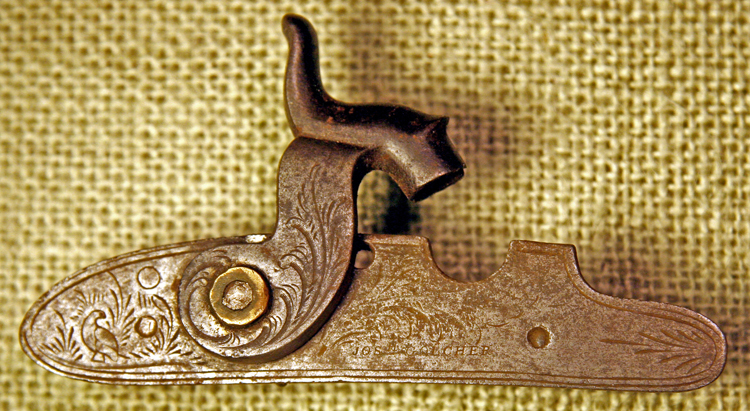
Signed Joseph Gulcher, this lock is has been
included to illustrate the type of decoration used in
the third quarter of the 19th century.
(top)
|